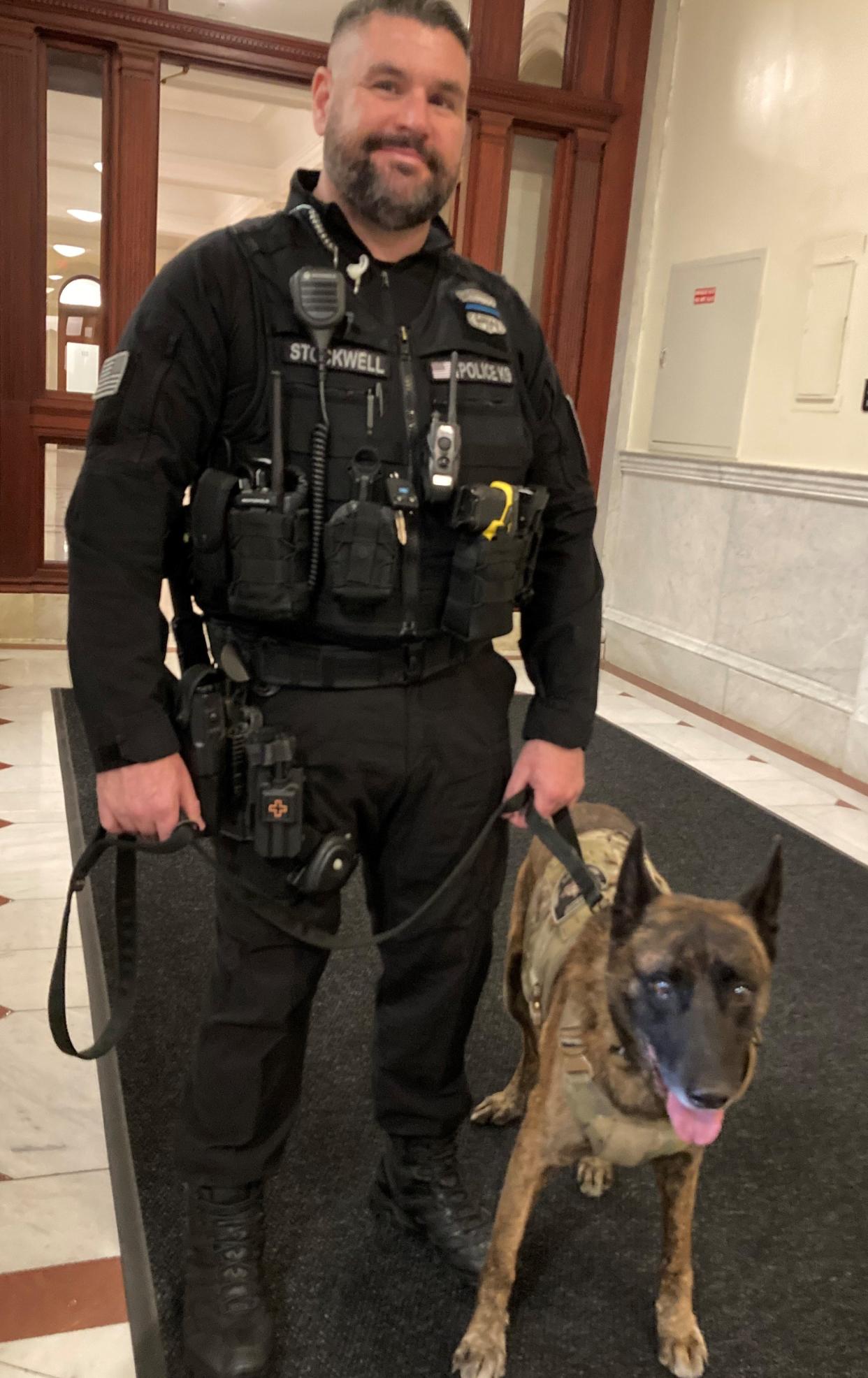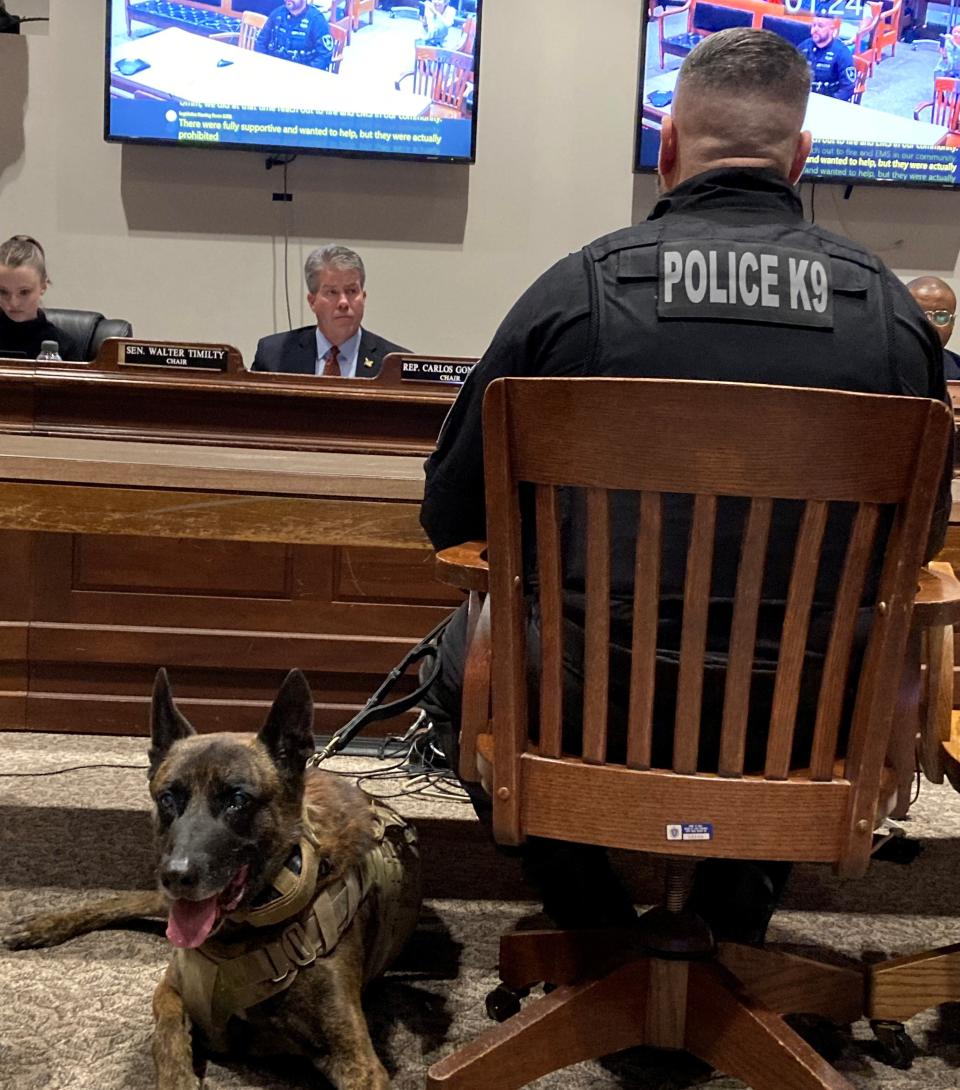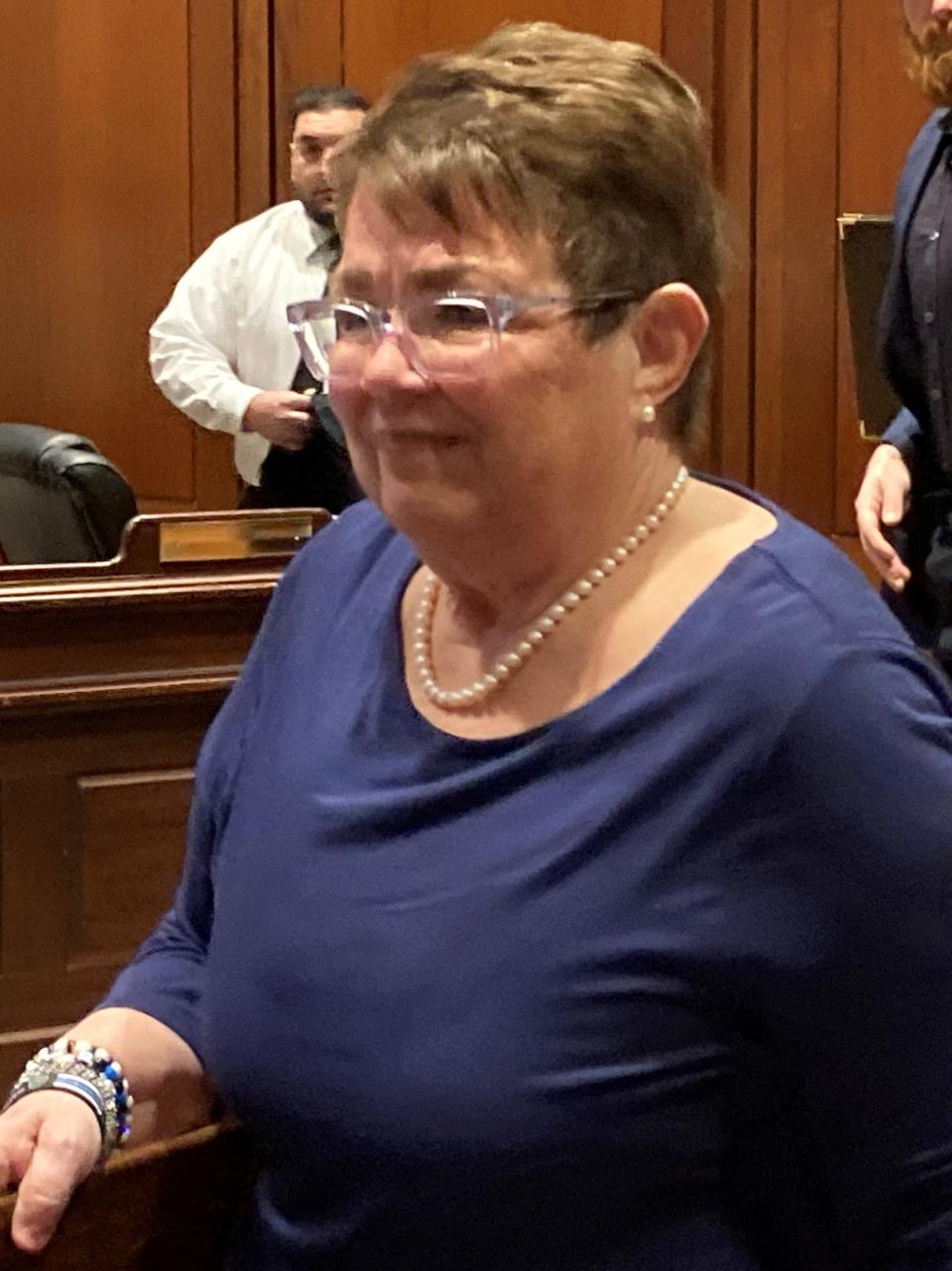K-9 officers want advanced life support for wounded partners and retirement benefits

BOSTON ― The Massachusetts State House went to the dogs Monday when several K-9 officers brought their partners along as they testified in favor of two bills to benefit injured and retired police dogs.
The first bill would allow emergency responders to offer advanced life support services to police dogs wounded in the line of duty as they are transported to veterinary hospitals. A second bill would establish a fund for the care and medical bills of canines who are ready to retire through the end of their lives.
Uxbridge Police Officer Tom Stockwell and his partner, Bear, a Dutch shepherd, described the importance of the proposed legislation.
Stockwell said that when they were involved in a rollover crash, Bear could not be transported by ambulance to a veterinary hospital; instead he was bundled into a patrol car and rushed to the vet.
Lack of emergency medical field care for injured animals
“There was no field care for the injured dog,” Stockwell said.
Much of the equipment that saves human lives can also be used to save K-9 lives, Stockwell said. In his experience, emergency responders welcome the training to treat wounded police service dogs.

The two have been partners in patrol and in the municipality’s narcotic division for seven years. Stockwell told legislators that Bear is nearing retirement, explaining that the service animals have an active duty span of six to eight years and can live to the age of 12.
“We’re at the back end of his career,” Stockwell told the legislators. Ideally, the service animal would retire into Stockwell’s home. The bond between the partners is tangible, Bear’s attention never wandering from Stockwell.
While Bear may not need extensive medical interventions as he ages, other K-9s wounded in the line of duty or suffering from post-traumatic stress disorder can need extensive supports. The special retirement fund would ensure that families are not strapped by medical expenses for their dogs.
The bill to create the retirement fund is being nicknamed "Dakota's Law," after a police dog who responded to the 2013 Boston Marathon bombing. The dog suffered severe emotional distress, requiring extensive rehabilitation.
Rep. Steven Xiaros, R-Barnstable, a former police officer, urged the committee to support the measure and allow Massachusetts to care for dogs through the end of their lives as they have served and protected residents of the state.
Rehoboth Officer David Aguiar, attending the hearing with his partner Edo, noted that “we don’t put down military veterans who suffer from PTSD, we will not put down K-9s that suffer from PTSD. These K-9s have trained, earned the title of police officer. They should retire as officers. They are not just dogs, they are our partners and serve as a vital part of the police force.”
'Nero's Law 2.0'
The measure to allow emergency responders to offer advanced life support services during transport of injured canines would supplement “Nero’s Law,” signed in 2022 by Gov. Charlie Baker, which permitted emergency medical treatment and transport for injured police dogs.
“This is Nero’s Law 2.0,” Xiaros said.
Xiaros was instrumental in the passage of Nero’s Law, after the shooting death of Yarmouth Sgt. Sean Gannon in 2016. Gannon and K-9 Nero were serving a search warrant in Barnstable when they were shot at; Gannon died and Nero was injured. Police were forced to transport the dog to a veterinary hospital in a police cruiser.

Nero recovered and retired with Gannon’s family. Gannon's mother, Denise, attended the hearing to support the two bills.
“Since Nero’s Law passed, I have attended all the trainings,” said Denise Gannon. She said the bond between the officers and their partners, and between the men working in K-9 units, is phenomenal. “Once you learn about the K-9 service, you realize, they are not just dogs, they are police officers and they save lives.”
A former music teacher and pastoral minister, Denise Gannon is now spending time advocating for K-9 units, their training, care and rehabilitation.
"The first time I heard the words 'officer down' was the day my son was killed," Denise Gannon said. "They are the worst thing in the world, not just for a parent, but for the officers, the department, the community. The special aspect of law enforcement that is the K-9 units. It's hard to describe; come to the trainings."
This article originally appeared on Telegram & Gazette: Mass. bills would would allow emergency care, benefits for police dogs

